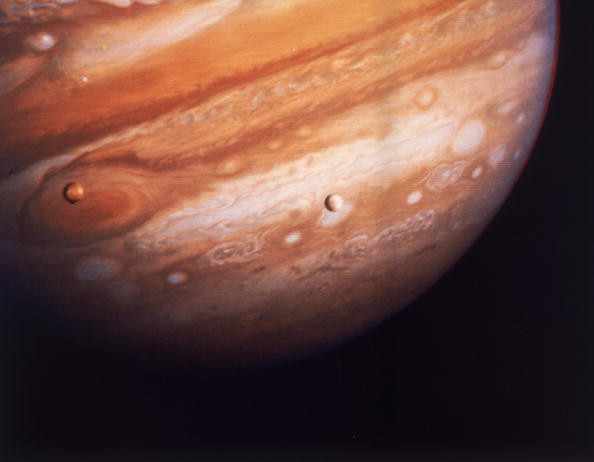Juno arrival: How and when to watch Nasa spacecraft enter Jupiter's orbit live online
Nasa's Juno spacecraft will arrive at Jupiter on 4 July after a five-year journey from Earth.
Nasa's Juno spacecraft will arrive at Jupiter on 4 July, ending its five year journey from Earth to the biggest planet in the solar system. At this point, the team will manoeuvre the spacecraft into Jupiter's orbit – a high risk procedure that will see it slow down by around 1,212 miles per hour and then catapulted into position.
Nasa will be broadcasting the orbital insertion live online, and is set to hold a conference at the Jet Propulsion Laboratory in California beforehand. You can watch events via Nasa TV or watch a livestream below.
The briefing will take place at midday Eastern Time, or ET (5pm BST).
The orbit insertion and commentary will begin at 10.30pm ET (3.30am BST).
Speaking to IBTimes UK ahead of Juno's arrival, principal investigator Scott Bolton said the rocket loader burn would start at around 8.30 pm and will last for around 35 minutes. However there is a delay of the signal getting back to Earth – so Juno scientists will not know its status until after the burn has ended.
"It will be a tense hour," he said. "We have to slow down. We are going really fast. We'll be moving [at] over 250,000kmh [155,342mph]. We have to basically fire a rocket – sort of reverse [a] thrust of a jet engine when it's landing.

"We have to fire that and slow down so we can make a transition from being in orbit around the sun to being in orbit around Jupiter. If we don't do that just right, you just fly right by and you lose everything," said Bolton.
"And there's critical things that have to happen on the way in... we have to spin the spacecraft faster so it's more stable when the rocket fires. Then we have to turn the spacecraft. That's one of the more critical events. We actually have to turn it in the right direction so the rocket motor is facing forward.
"When I do that, I have to turn the solar arrays away from the Sun. So then we're on batteries, we're no longer getting power from the Sun. We're on battery power, so the rocket motor has to burn for just the right amount of time and then turn the spacecraft back to the sun before we run out of battery. There are a lot of things to worry about it. A lot of it is very high-risk. But if you don't push the envelope and take chances then you don't get to score the big wins."
© Copyright IBTimes 2025. All rights reserved.






















